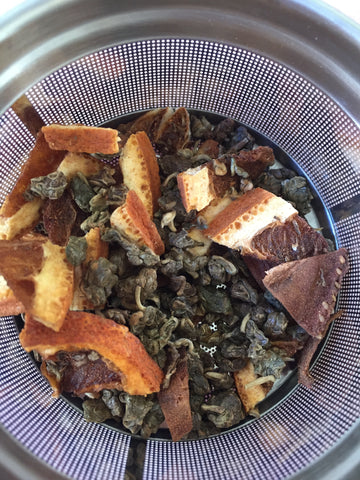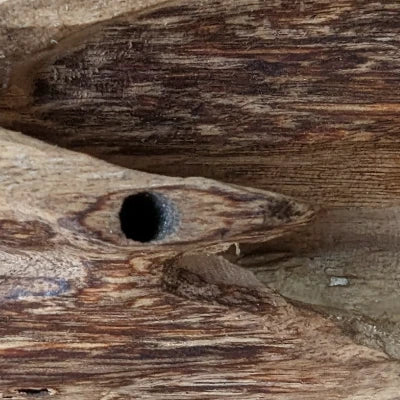Menu
-
-
F.A.Q
- How to identify genuine agarwood chip, natural or cultivated
- How to identify oil injection / absorption fake agarwood beads
- How to know if there are more than one oil in your oil
- How to make your wood bracelet or mala darker
- How to tell if an Agarwood bead sinks WITHOUT sinking it under water?
- How does back flow incense work and how do you burn it?
- Where to start if you don't know what agarwood is ?
- Why are you losing money if you buy seeds and plants?
- Which agarwood incense should I choose?
- Frequently Asked Questions
- Agarwood Related Articles
- Shipping
-
SHOP - Agarwood
-
SHOP - Other Fragrant Wood
-
SHOP - Incense Holder and Burner
-
- FREE guide book
- Testimonials
- "Why did you buy this?"
- Contact us
- About Us
- +61430284329
- Login
-
English

More Science Research about agarwood leaves
December 23, 2015 2 min read
Nik Noor (2014) and his research teams conducted a study about the antioxidant activity of Aquilaria Malaccensis leaf extracts (agarwood leaf) which possess significant antioxidant activities.
Infected Aquilaria species are high sought after for its oil, resin for fragrance and incenses. Its leaves offer valuable in medicinal properties.
The preliminary phytochemical screening tests revealed the presence of alkanoids, terpenoids, flavonoids, steroids saponins and tannins which support antioxidant activities, analgesic, antipyretic, anti-inflammatory, anti-hyperglycemic and anti-microbial for various medicinal purposes.
Below are constipation relief evidence
Brief summary: In 14 days of study with rat (All experiments were approved by the Animal investigation Committee of Gifu Pharmacological University), the stool frequency and weight is increasing without diarrhoea.
Genkwanin-5-O-beta-primeveroside could play a key role in laxative activity via acetylcholine receptors in the presented low-fiber diet-induced model.

In the other hand, sleep aid is another benefit agarwood leaves offer.
One of our reviewers say "............. The time of day you drink this tea is also important! It seriously makes you sleepy. The first time I drank it at noon and I just wanted to nap all afternoon. The second time I had it before bed and slept like a baby. Also, keep in mind that this tea does indeed affect your bowel movements..............." (teaviews.com)
Agarwood leaves could be bitter if you put too much into a cup (5 to 8 tea balls in 250 ml cup or glass are sufficient). Flavours such as lemon, fresh or dried orange could be used, even a mix of green tea will make it smoother. Due to its natural chemical composition, you would be relaxed and calm when consumed.
Agargood leaves could be mixed with other tea, dried orange, strawberry , other fruits to vary its taste.

Chemical composition of agarwood leaves
For your interest of chemical composition of agarwood leaves, studied by Zhongguo Zhong Yao Za Zhi 2012, there are:
Thirty-three compounds were obtained. Among them, twelve compounds were identified as 5-hydroxyl-7,4'-dimethoxyflavone (1), acacetin (2), luteolin (3), genkwanin (4), yuankanin (genkwanin-5-O-beta-D-primeveroside, 5), adenosine (6), genkwanin-5-O-beta-D-glucopyranoside (7), hypolaetin-7-O-beta-D-glucopyranoside (8), hypoxanthine (9), uracil (10), 8-C-beta-D-galactopyranosylisovitexin (11), and 4-(1,2,3-trihydroxypropyl) -2,6-dimethoxyphenyl-1-O-beta-D-glucopyranoside (12), respectively.
Sounds "rocket science"? Let's me break it down a few through science articles:
- Genkwanin offers anti-inflammatory (Gao Y, 2014), and Antibacterial activities (Lucarini 2015).
- Bioflavonoids Acacetin (ACA) and Luteolin (LUT) are anti-cancer chemical compounds (Effect of bioflavonoids Acacetin and Luteolin on HO-1 Human Melanoma Cancer Cells 2009)
- Adenosine: is used under the tongue to increase physical energy. It is also given intravenously (by IV) for treating acute kidney failure, multiple organ failure, high blood pressure in lungarteries (pulmonary hypertension), cystic fibrosis, lung cancer, weight loss associated with cancer, and controlling blood pressure during anesthesia and surgery. It is also used for cardiac stress tests.
Just make it simple, agarwood leaves offer many benefit and could be consumed daily. Trust me, if you could not sleep, this tea is for you, or anyone who loves natural remedy !!

Leave a comment
Comments will be approved before showing up.
Also in News

Anoint with The Zen Path, and you will never yearn for the artificiality that numbs the senses
March 03, 2024 2 min read

You say: “Your Agarwood is too expensive”. Let’s Reason Together - about Price
February 14, 2024 8 min read
